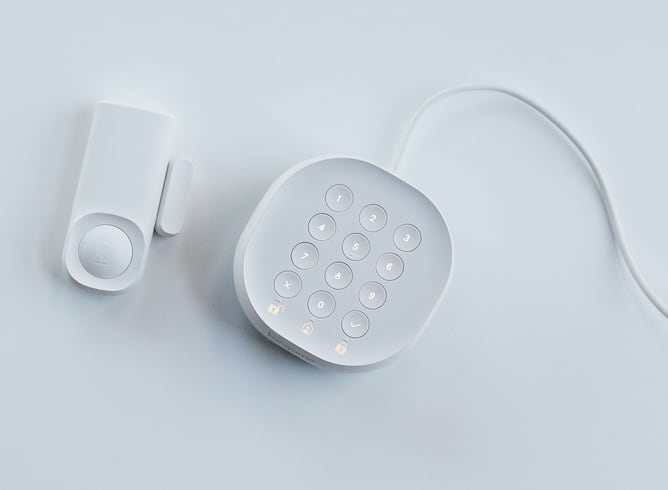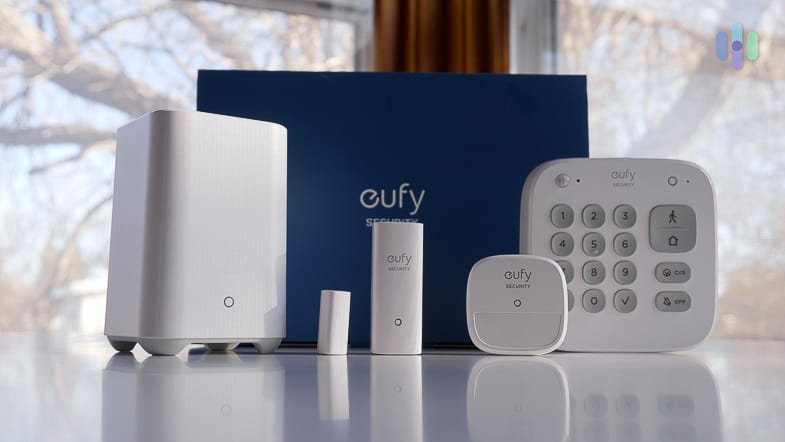It is easier than ever to buy and install a home security system, which is one reason that you’ll find them in more and more homes. You should know, though, that there’s more involved in setting up an alarm system than simply installing a few cameras around the house. Owning an alarm makes you part of a community; below, we’ll tell you everything you need to know about how to be a responsible member of that community via alarm system permits.
A lot of people overlook one crucial step: getting an alarm permit. Now, an alarm permit is not required in every state or municipality. Thankfully for you, we live where it’s required. So, we’ve been through the alarm permitting process tons of times and can tell you all about our personal experience applying for alarm permits. They’re not as hard to get as you might think since your security provider should help you every step of the way.
Do I Need An Alarm Permit?
In most areas, you need an alarm permit if you have a monitored alarm system. If your system has smoke detection as well, you may also need a separate permit for emergency fire dispatch. The good news is, the best monitored security systems such as the ones below will help you apply for necessary permits and they can also tell you what types of permit you need in your location.
Why Do I Need an Alarm Permit?
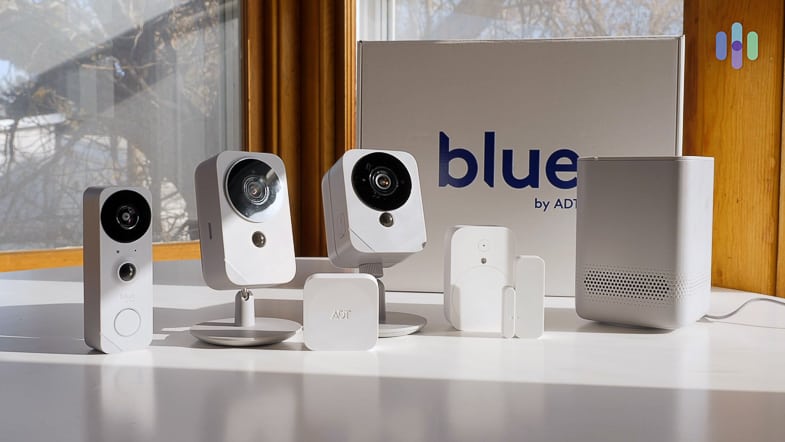
FYI: To get a better idea of which kind of alarm will work best for you, check out our guide to home security systems.
The reason why you need a permit is simple. Cities and counties require them and generally charge a steep fine if emergency services respond to a false alarm at a home without a permit. A permit comes with a registration number that allows police and fire personnel to contact homeowners quickly during emergencies. And when permit-holders are held responsible for their alarms, the number of false alarms decreases, saving time, money, and manpower.
The More You Know: During the average year, fire departments respond to nearly three million false alarms, tying up resources that might better be used for actual emergencies.1
Of course, every municipality is different, and the best way to know for sure what permits you may need is to check out your local laws. Some companies also list the required permits on your invoice, but you might also do a quick web search to find out what’s required in your neighborhood. But the safest option is to use a non-emergency line to call the emergency services in your area and simply ask.
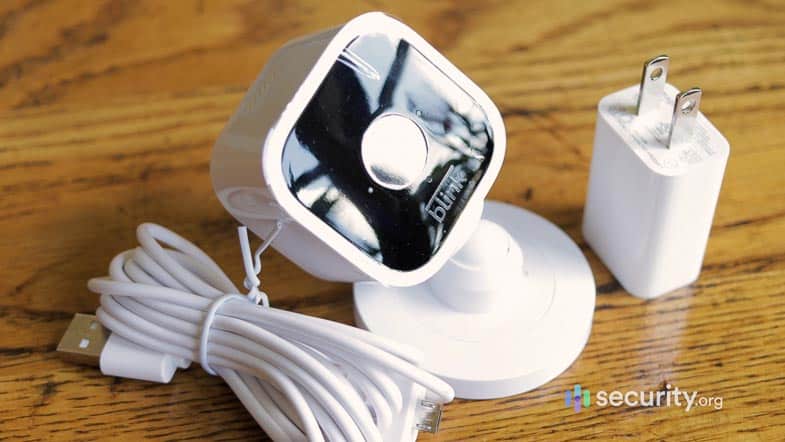
What Is An Alarm Permit And How Does It Work?
In the simplest terms, an alarm permit registers your alarm with local emergency services, including the fire and police departments. In most cases, you pay a permit fee of between $25 and $100 and your home is assigned a unique number. Emergency services use this number to identify you. This makes it easier for responders to contact you and verify that an emergency is genuine. In some locales, you may also be asked to place identifying stickers on your home’s windows and doors.
How And Where To Get An Alarm Permit
As we’ve mentioned before, every city and county is different in terms of how they treat alarm permits. However, the basic process for getting a permit is usually very straightforward. We’ve moved a lot so we’ve applied for alarm permits at a few different municipalities. At each place we lived, we applied for an alarm permit by following these steps:
Steps to Get An Alarm Permit
- Find out just which permits you’ll need for your alarm (fire, police, electrical).
- Visit your town’s city hall or the local county courthouse and purchase your permit.
- Install any required stickers on your home.
- Keep up with any annual fees associated with your permit.
Again, in some cases, security companies may be willing to file your permits for you, if the jurisdiction allows for that. Even if you’re doing it yourself, though, the entire process should be relatively painless.
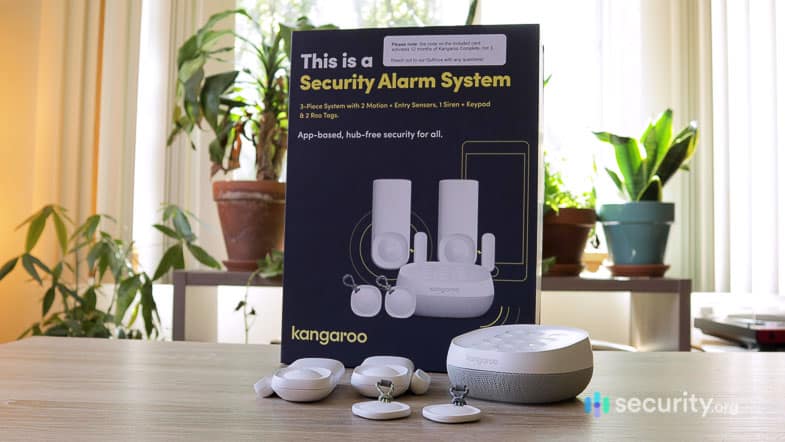
Types and Lengths of Permits
Generally, there are three types of permits you may need to purchase for your security alarm system.
- Police Permit: A police permit registers your alarm system with the local police department.
- Fire Permit: A fire permit registers your alarm system with the local fire department.
- Electrical Permit: An electrical permit allows you to install a wired alarm system in your home.
Often the police and fire permits will be combined into one “emergency services” permit. Once again, this depends on where you get your permit(s). We’ve had them separated at two places we lived and combined at two other places. So, it’s really a toss-up. The places that combined them made the process a bit easier although you can apply for both at the same time in places with separate fire and police permits.
Does an Alarm Permit Expire?
Some locations offer one-time permit payments that last for the life of your alarm system. Carmel, Indiana, for example, charges a one-time fee of just $10. Most cities and counties, however, require annual payments. Ann Arbor, Michigan, for instance, charges an annual fee of $37.2 In many cases, though, renewal fees are less than the initial sign up fee. Oklahoma City charges a $27 signup fee but annual fees are just $17.3 And In Los Angeles, you’ll pay $43 to set up your alarm systems, but annual renewals cost just $11.87.4
What is the Difference Between an Alarm Permit and an Alarm License?
Though the names sound similar, alarm permits and alarm licenses are very different. An alarm permit registers a home or business alarm system with the city or county. It provides the alarm system with an individual registration number, a number that makes it easier for emergency services to contact homeowners.
In contrast, an alarm license is issued to alarm monitoring companies, giving them permission to operate in the area. As a security system user, you’ll only have to worry about alarm permits and not alarm licenses.
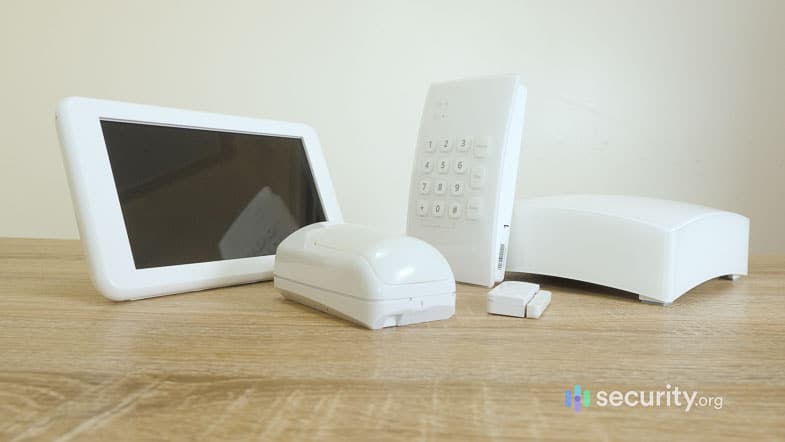
Alarm Permit Fees
Alarm permit fees can vary widely. Some locations, for instance, don’t charge a fee at all. However, most locations charge between $25 and $100 for a permit. Most locations also charge an annual fee, but often that fee is significantly lower than the initial cost of the permit. To find out exactly what sort of fees your area charges, use a non-emergency number to contact your local police or fire department.
What If You Don’t Have an Alarm Permit?
In some locations, like Los Angeles for example, it is against the law to operate a home security system without a permit, and failure to register might actually get you jail time.5 Other places have instituted “no permit, no response” policies; emergency services simply won’t respond to an alarm if the owner hasn’t purchased a permit. In most cities, homeowners face a hefty fine of up to $1,000 if emergency services respond to an unregistered alarm.
What Is A False Alarm?
As we point out in our article on home security systems, one of the downsides to having systems is that they can be prone to false alarms. A false alarm means an alarm that was triggered without a real emergency. These usually occur either as a result of accident or through deliberate deception. Each year in the U.S, false alarms cost emergency services billions of dollars. Seattle alone estimates that it loses one million dollars each year to false alarms.6 And the financial costs, of course, don’t take account of the fact that false alarms represent a serious distraction to police and firefighters trying to respond to actual emergencies.
We hate to admit it, but we’re a part of these statistics. We’ve had false alarms bring the police to our doorstep testing the alarms in the security systems we review. Thankfully, they waived the fee for us and we had a permit. Still, we’ve become more careful over the years to prevent it from happening again.
As a result, almost all counties and municipalities charge some fee for false alarms. Sometimes the policy is to waive these fees for a first offense, but multiple offenses can result in higher fees. In Dallas, for instance, the first three false alarms each year are free. The fourth, fifth, and six are $50. The seventh and eighth are $75. And any more than nine are $100.7
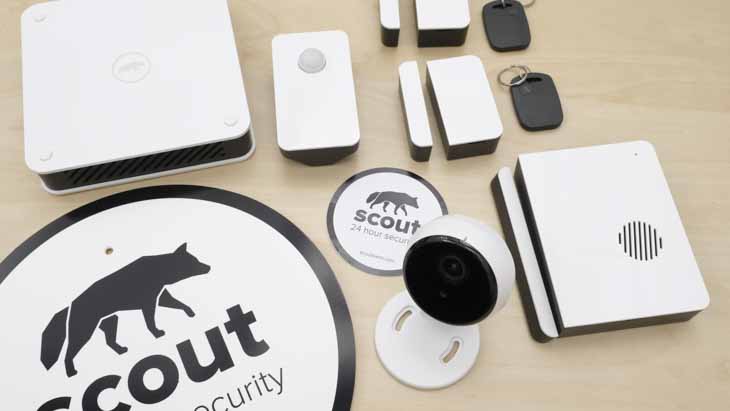
How to Avoid a False Alarm
Want to avoid paying those hefty false alarm fines and be a responsible citizen while you’re at it? Here are a number of steps you can take to eliminate false alarms from your security system:
- Make your emergency contacts shared users on your account. That means that they’ll be able to arm and disarm your system if you can’t. While it’s always important to be careful about who you share your alarm system information with, when more people you know can disarm the system, it’s more likely one of them can shut it down quickly in case a false alarm is imminent.
- Make sure everyone in your home is comfortable arming and disarming your system. Have everyone in your household practice using the system so that there’s less likelihood that they will make a mistake.
- Issue “guest” passwords to people visiting. Most alarm systems can generate a temporary guest password that will allow your friends and relatives to safely arm and disarm the system themselves.
- Save the monitoring company’s number as a contact in your phone. Make sure you have the monitoring company’s phone number stored somewhere in your phone so it’s handy when you need it. This makes it easier to call and cancel an alarm before emergency services are dispatched.
- Turn own motion sensor sensitivity. False alarms can sometimes be caused by a motion sensor that is set to “high” sensitivity. If you find you’re having false alarms, you might change the sensitivity to “low.”
Pro Tip: Pets are one of the leading causes of false alarms. Check out our list of the best home security systems for pets to find out how to avoid this common problem.
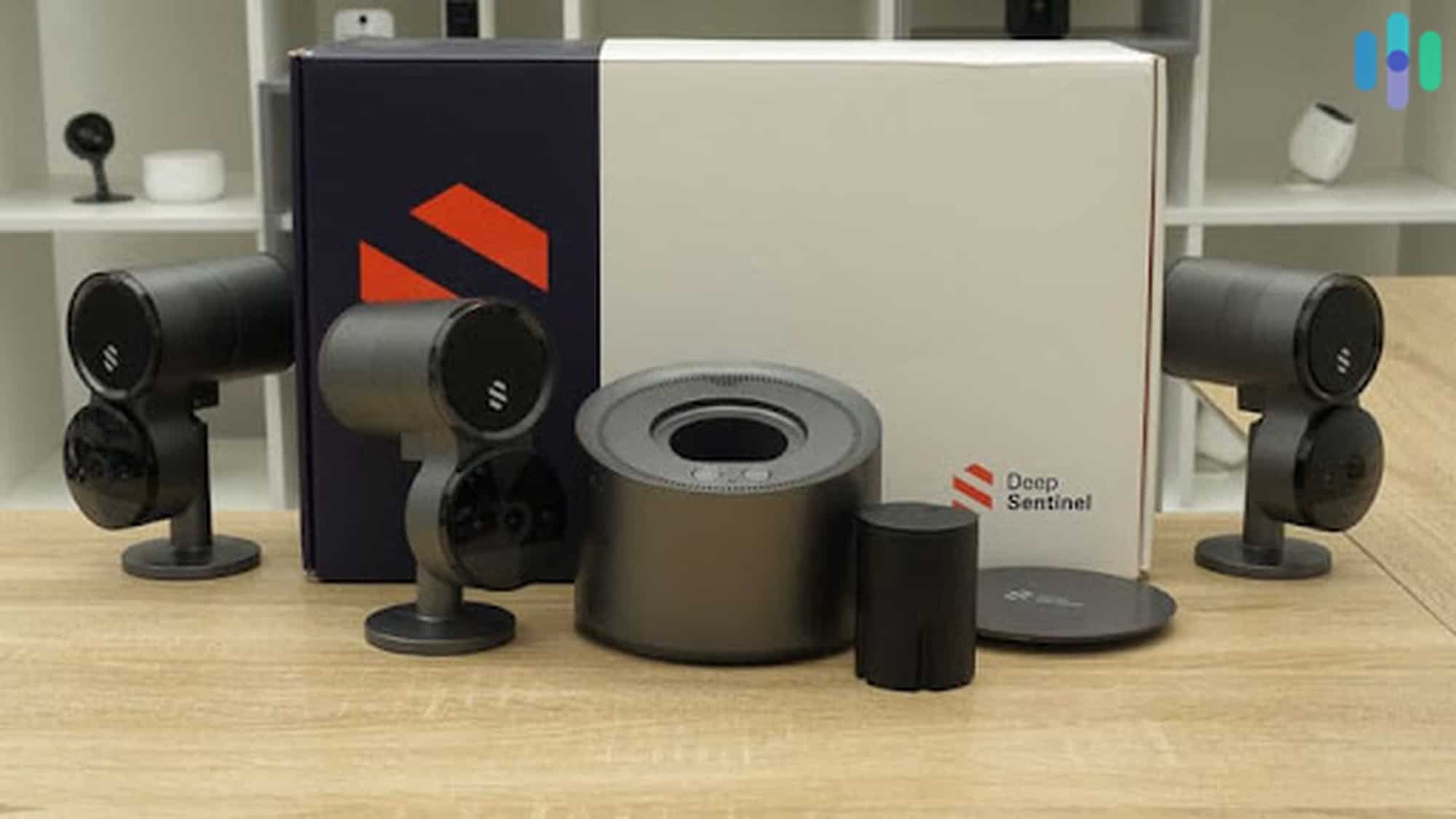
Recap
Home security is vital. If you’ve read our article on whether you need home security, you know it’s one of the most important things you can do to keep your family and belongings safe. It’s also important to remember, though, that owning an alarm system comes with responsibilities. Almost anywhere you live, you are expected to register your alarm system with the local government and obtain a permit. In most cases, you’re also expected to pay an annual fee to renew this permit. It is equally important to maintain your alarm properly and to do all you can to prevent false alarms. After all, the whole reason you got an alarm system was because you’re a responsible homeowner. Be responsible enough to register your system as well.
FAQs
Hopefully, this guide has given you the information you need on alarm systems and permits, but we’ve answered a few frequently asked questions below.
-
Do I need a permit for a Simplisafe alarm system?
You need a permit for a Simplisafe alarm system if your municipality or county requires one. As a service to its customers, Simplisafe lists required permits on their invoices.
-
How do I know if I need a permit for a Ring Alarm?
You can find out if you need a permit for a Ring Alarm by contacting your local emergency services’ offices and asking.
-
Can I install my own home security system?
You can install many home systems yourself. However, you should always check to find out whether fire and/ or police permits are required to operate the system and whether you need an electrical permit to install the system.
-
What is a false alarm?
A false alarm is a deceptive or erroneous report of an emergency causing unnecessary panic or expenditures.
-
What happens if my alarm permit gets denied?
If you’re working with a reputable security company, getting your permit denied is extremely unlikely. Their experts help you with every step of the permit application and they’ve done it thousands of times. But, if something does go wrong, your provider should help you fix any errors and reapply for your permit.





